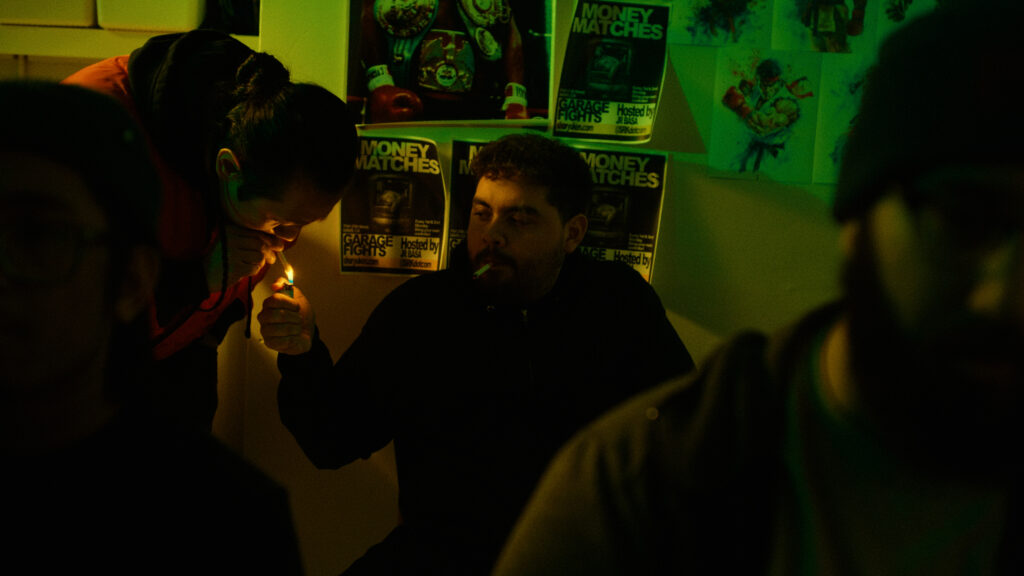Jezer Serafica’s ‘Good Game’ locks its focus on a man whose identity is built on bravado and barely disguised fear. Champ, played with volatility by Eric Gomez, is a swaggering gamer, a compulsive gambler, and a loudmouthed homophobe. He doesn’t hide behind politeness – he spits venom, slices through opponents with cruel wit, and shrinks the room with his arrogance.
Cinematographer Arman Lopez frames him in shadows and tight spaces. The film lives in this darkness, not for style, but because it mirrors the storm inside Champ’s head. When Luis (Michael Cichocki) beats him at his own game, the bravado collapses. What follows is not redemption, but exposure. No tears, no speeches – just a man unravelling, twitching with panic beneath the weight of everything he’s denied.
There’s a montage halfway through that punches hard – quick cuts and blurred thoughts spiraling. This is where the thriller energy comes alive. The film watches mental decay without blinking. It recognizes the violence of repression, especially when it’s directed inward.
Gomez nails every shift: the performative alpha, the wounded ego, the quiet tremor of shame. He doesn’t play Champ for sympathy, and that’s exactly why the performance hits hard. You watch a man eat himself alive and understand exactly why he can’t ask for help.
‘Good Game’ delivers a character-driven descent, rooted in precise direction and committed performances. It doesn’t moralize, not does it explain – it just shows. The result is bold and unnerving.



